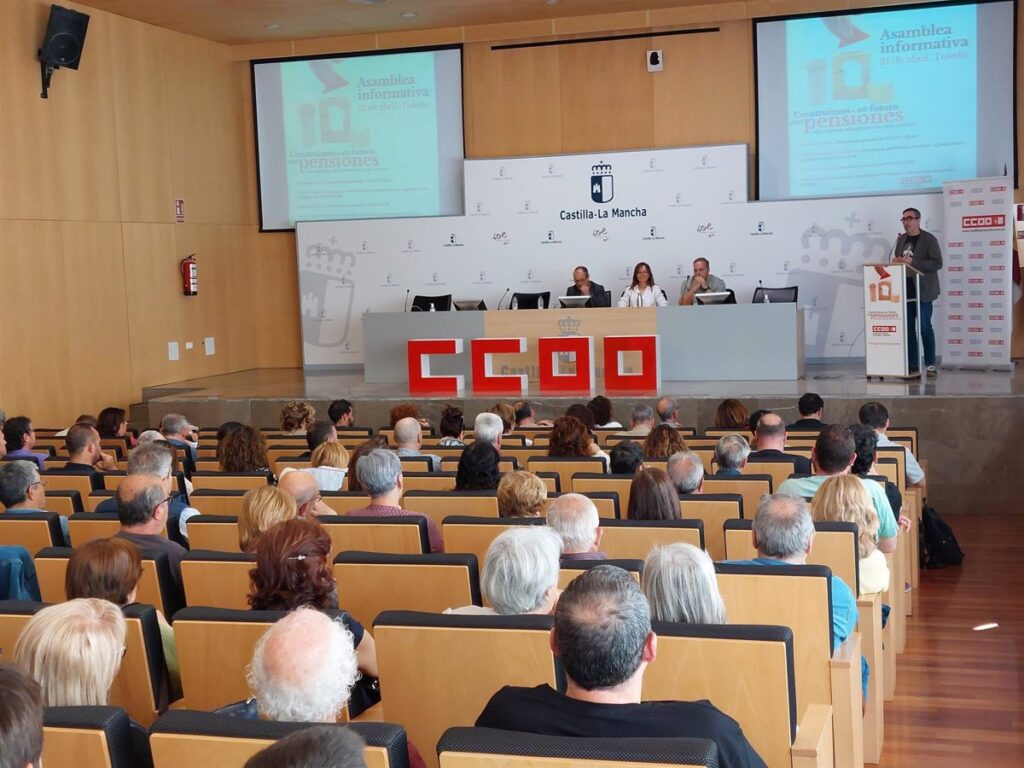CCOO’s Confederation Secretary for Public Policy and Social Protection, Carlos Bravo, has referred to the Housing Bill expected to be approved by Congress on Thursday 27th, as «an important and positive law that should facilitate our young people’s early emancipation, but it needs to be a law that is applicable throughout the territory». Bravo made these statements in the regional capital, where he participated in an assembly on pension agreements involving more than 200 trade union delegates. He requested that the law be open to the possibility of declaring «tense areas», i.e., areas where access to rented housing at reasonable and affordable rates must be protected, to all competent authorities. «We ask that when the autonomous regions do not do their job, the local administrations, and even the central government, should do so. This is not adequately reflected in the law, but there is still time to correct it,» the union said in a press release.
Bravo stated, «If we want to support the early emancipation of young people in the country, we have to guarantee that the coverage mechanisms provided by the Housing Bill are applied throughout the territory. We cannot allow a conservative regional government to torpedo the new rights derived from this law, meaning that it may not be applied in large territories of the Spanish State».
Regarding the pensions agreement, which, according to Bravo, provides more protection, more income, and more certainty, he said that «compared to a welfare model that seeks to cover more people with the same efforts that have been made until now, the succession of Social Security agreements we have reached between 2021 and 2023 guarantees, in terms of income for the Social Security system, economic amounts equivalent to the cuts that the PP attempted to implement in 2013.» He defended that this reform is a commitment to redirecting the Social Security system towards preserving future generations’ similar protection to that provided to current generations of pensioners, ensuring their purchasing power now and guaranteeing the system not only for the baby boom generations, born between 1958 and 1978, but also for younger generations.
In this regard, the CCOO’s Regional Secretary for Public Policy and Social Protection highlighted that as of October this year, people who are studying, nearly one million young people enrolled in vocational training and close to one and a half million university students, in addition to obtaining an academic degree, will accrue periods of contributions to Social Security so that when they complete their training period, they will have a contribution period to determine their future rights to retirement or disability.
Paco de la Rosa, the CCOO’s Regional Secretary, stressed that once again, «social dialogue has also shown that the pension agreement has dismantled the mantra, repeated for decades, that the public pension system is unsustainable and that the only formula to maintain pensions was through cutting them.» This agreement «guarantees today’s pensions and those of at least the next 25 years.»
In contrast to the 0.25% increase in pensions under the PP’s revaluation system, «in the first year of the agreement, we managed to raise pensions by 10% in real terms, with some pensions increasing by more than €200 in Castilla-La Mancha, which, let’s not forget, is the second region with the most pensions with minimum supplements.». «This reform will allow for a significant boost to the pensions of people who have been working all their lives and who will not lose purchasing power in any case,» he concluded.



















